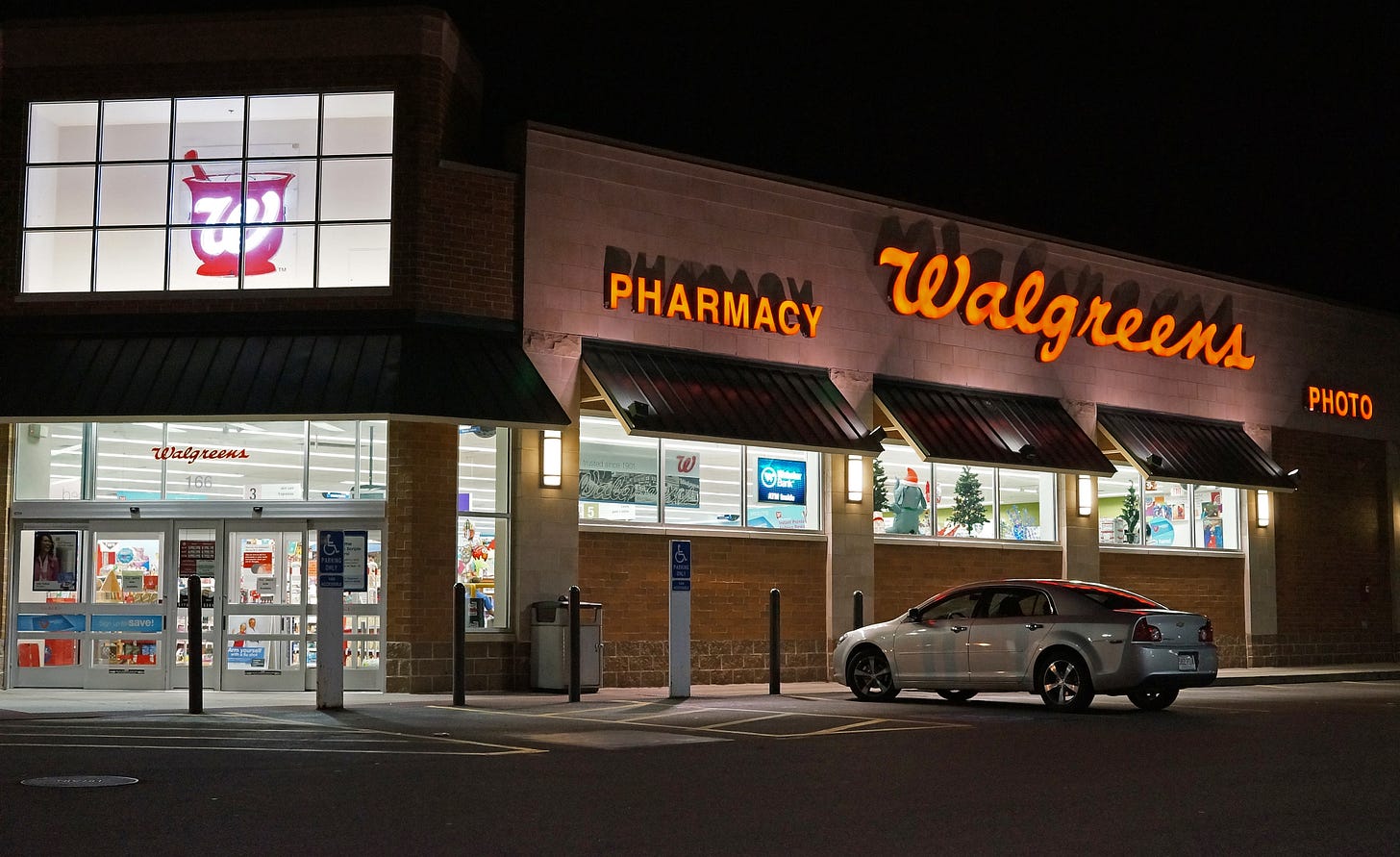💊 KKR's Plan for Walgreens
Sometimes we Americans are so busy gaping at the size of a thing that we miss the real significance of a thing.
As is the case with the news Monday that private equity firm KKR is making a formal offer to take Walgreens private. News outlets have breathlessly reported that at $55 billion this would be the largest private equity deal ever.
Can KKR even pull it off? Yes, reports Andrew Barry at Barron’s. If Warren Buffet’s Berkshire Hathaway, sitting on a mother-load of cash, takes an ownership stake AND Walgreens sells its $5 billion ownership share in drug distributor AmerisourceBergen, then KKR can pull of the largest leveraged buyout in history.
Going beyond size
Going unmentioned (perhaps because everyone is so blinded by the size) are the potential strategic ramifications.
Just last month, a federal judge gave a final ok to the CVS-Aetna merger, a deal worth $70 billion. There are obvious implications for such a gigantic, vertically integrated retail-insurance behemoth, especially when one considers that CVS has been moving slowly and inexorably into becoming more like a doctor’s office than a place to go pick up milk late at night.
As I wrote in September:
In order to get approval for the $70 billion acquisition, CVS gave up its Medicare prescription drug business. But CVS remains the largest pharmacy chain in the country, with more than twice as many pharmacists as Walgreens, the next biggest competitor. CVS also owns MinuteClinic, a walk-in healthcare clinic with more than a thousand locations. With the acquisition of Aetna, the country’s third-largest health insurance company, CVS is getting very close to being a one-stop shop for the vast majority of my - and potentially your - healthcare needs.
A vertically integrated CVS-Aetna can now attract more customers from both ends. More health insurance shoppers might choose Aetna for the convenience of having an insurer with over 10,000 retail locations nationwide. Meanwhile, more Aetna customers will be driven toward CVS to pick up their prescriptions.
On top of that, CVS is planning to roll out more than 1,500 HealthHubs, which provide counseling on topics such as weight loss and nutrition. And, of course, after receiving said counseling, customers can then go down the next isle to pick up the requisite weight loss shakes and nutritional supplements.




